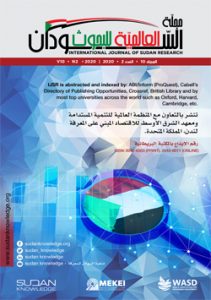Promotion of Camel Production and Marketing through the Application of Sustainability and Traceability Programmes for Re-building Sudan, Prof. Ibtisam El Zubeir

 Professor Ibtisam El Zubeir
Professor Ibtisam El Zubeir
Institute for Studies and Promotion of Animal Exports
University of Khartoum
Khartoum
Sudan
ORCID: 0000-0001-8173-7693
Paper Type: Research
Received: 14 May 2025 / Revised: 24 July 2025 / Accepted: 25 July 2025 / Published: 30 July 2025
DOI: 10.47556/J.IJSR.12.2.2025.4
Purpose: This paper describes the challenges facing camel production and marketing, with some recommendations to restore camels to Sudan.
Design and Approach: The design depends on previous field visits, official data and publications.
Findings: Camels survive well in harsh environments. Sudan was the second richest country in owning and exporting live animals worldwide until 2019. In Sudan, the camel has important socio-economical roles among the traditional herders. Uses include milk, meat, wool, hide, racing, traction and tourism. However, the processing of camel products is limited.
Originality/Value: Implementing some interventions will improve the husbandry practices and solve the constraints facing the commercialisation of camels. The application of animal identification will conserve national herds’ genetic resources, while traceability is important for upgrading products’ quality and facilitating international trade.
Practical Implications: Enhancing camel production and marketing, promoting lifestyle of producers and traders, promoting exports and upgrading product quality, therefore conserving national herds’ identity and economic growth.
Keywords: Camelus Dromedarius; Sudan; Nomads; Production Systems; Constraints; Processing; Interventions; Traceability; Export.
Citation: El Zubeir, I. (2025): Promotion of Camel Production and Marketing through the Application of Sustainability and Traceability Programmes for Re-building Sudan. International Journal of Sudan Research (IJSR), Vol 12, No. 2, pp. 163-174.

